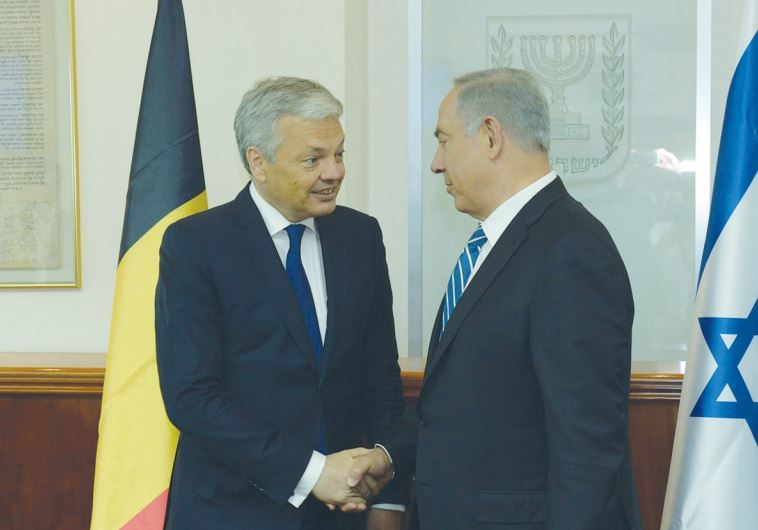Belgian foreign minister confident ISIS will be defeated
Didier Reynders is currently on a visit to Israel, the Palestinian Authority and Gaza.
 PRIME MINISTER Benjamin Netanyahu welcomes Belgian Foreign Minister Didier Reynders to his Jerusalem office
PRIME MINISTER Benjamin Netanyahu welcomes Belgian Foreign Minister Didier Reynders to his Jerusalem office